German Government Funds Autonomous Subsea Robotics System Development Project
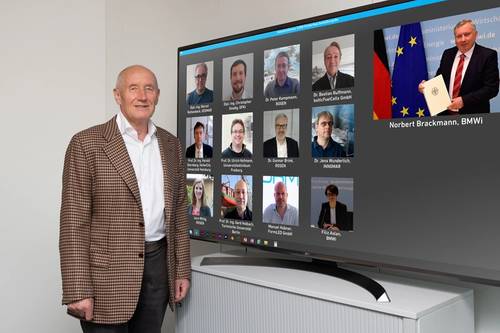
Hermann Rosen, President of the ROSEN Group (on the left in the photo), at the handover of the funding decision by Norbert Brackmann, Coordinator of the German Government for the Maritime Industry (on the top right), to representatives of the nine participants of the CIAM project during an online event. Image: ROSEN Group
The German Federal Ministry for Economic Affairs and Energy is providing 12 million Euros as part of the Maritime Research Program for the development of a novel autonomous submersible robotics system that will enable autonomous monitoring of underwater installations in the deep sea.
All told, there are nine participating companies in the Cooperative Development of a Comprehensive Integrated Autonomous Underwater Monitoring Solution (CIAM) project, present during an online event on April 30, 2021 for the presentaton of funding from Norbert Brackmann, member of the German Bundestag and the German government's coordinator for the maritime industry.
“I am pleased to be able to give the go-ahead today for a new marine technology project that is not only an example of the maritime industry's high innovative strength, but is also characterized by good cooperation between small and large companies, renowned universities and research institutions," said Brackmann. "As a future and growth industry, the maritime sector is actively shaping the maritime energy transition and investing in research and development. The future CIAM vehicles, which are expected to achieve particularly long mission durations, be deep-sea capable and yet relatively light, will be a step forward for German marine technology. With such innovative technologies for pipeline and submarine cable inspection, we are also strengthening our position on the world market.”
As part of the project unmanned autonomous submersible robotic systems controlled by artificial intelligence will be developed and built to monitor underwater assets and infrastructure such as oil and gas pipelines, hydrogen lines, renewable energy power cables, and telecommunications cables, and help prevent damage to these assets. Specifically the CIAM project aims to solve a key problem of unmanned submersible vehicles: namely, that AUVs have so far required large, costly support vessels, in addition to high risks associated with flooding the AUVs and retrieving them from the sea again.
In addition to Rosen Group, the consortium includes three renowned universities, two research organizations and three technical experts from Rostock, Schwerin and Karlsruhe as project partners. Dr. Gunnar Brink, Head of Global Market Strategy for Subsea Asset Integrity at the Rosen Group, will coordinate the project consortium.
The CIAM Project team includes:
- The Rosen Group, a provider of solutions in all areas of the integrity process chain.
- FormLED GmbH is a young technology company specializing in electrotechnical developments. For CIAM t will focus on solutions for the development and optimization of pressure-neutral subcomponents for the submersibles.
- INNOMAR has been supplying equipment and software for marine and offshore applications for more than 20 years. The company's role in the CIAM project will be to optimize the sediment echosounder’s size, weight, energy requirements, pressure resistance and modes of operation for the AUVs.
- balticFuelCells GmbH will focus on the fuel cell system for the AUV. The company specializes in the development of fuel cells and their integration into fuel cell systems.
- The German Research Center for Artificial Intelligence GmbH (DFKI) will contribute to the command and control of the long-range AUV systems.
- Technical University Berlin will focus on docking, charging and data transmission of the underwater AUVs.
- HafenCity University Hamburg will contribute the development of inertial navigation systems and the method for autonomous docking of the system underwater.
- The University Medical Center Freiburg will focus on the development of electric field sensors that can cope with the harsh underwater environment and measure highly sensitive corrosion protection.
- GEOMAR Helmholtz Centre for Ocean Research Kiel specializes in all relevant aspects of modern marine science. The institute will develop the AUV’s camera system and provide test platforms for the systems.

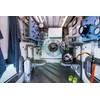
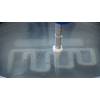
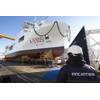
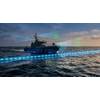
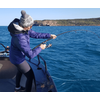
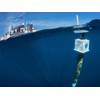






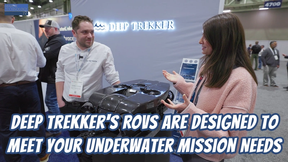
 December 2025
December 2025



